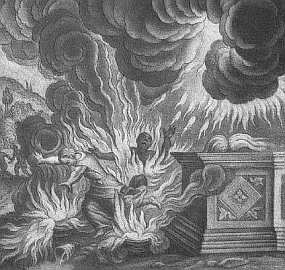Now there are varieties of gifts, but the same Spirit; and there are varieties of service, but the same Lord; and there are varieties of activities, but it is the same God who empowers them all in everyone. To each is given the manifestation of the Spirit for the common good. For to one is given through the Spirit the utterance of wisdom, and to another the utterance of knowledge according to the same Spirit, to another faith by the same Spirit, to another gifts of healing by the one Spirit, to another the working of miracles, to another prophecy, to another the ability to distinguish between spirits, to another various kinds of tongues, to another the interpretation of tongues. All these are empowered by one and the same Spirit, who apportions to each one individually as he wills.
—1 Corinthians 12:4-11 ESV
Last week was something of a new low in the “conversation” between those who believe the gifts of the Spirit (charismata) continue today (charismatics or continualists) and those who claim those gifts ceased as of the closing of the apostolic age (cessationists). It’s almost a fact that charismatics don’t start battles with cessationists. If only the opposite were true, especially on the Internet.
 The supposed reason for the Strange Fire Conference of last week was to address and correct “charismania”—out-of-control or flat-out bogus gifts and the people who express them. The authority question arises when the correctors included no charismatics. So much for cleaning one’s own house first or sticking to the log in one’s own eye before finding the speck in your brother’s.
The supposed reason for the Strange Fire Conference of last week was to address and correct “charismania”—out-of-control or flat-out bogus gifts and the people who express them. The authority question arises when the correctors included no charismatics. So much for cleaning one’s own house first or sticking to the log in one’s own eye before finding the speck in your brother’s.
There is no doubt that the charismatic movement is a mess. Most charismatics with orthodox theology will acknowledge this—and there are MANY of us. I know I’m not happy with charismania and have written EXTENSIVELY on it and its practitioners, decrying the nuttiness and flat-out heresy. And MANY of us have loudly proclaimed this.
Which is why it’s frustrating that some folks who reject the charismata waltz into the charismatic house and tangentially proclaim by live streamed conferences that every charismatic is borderline, and if we’re actual born-again Christians, we’re so in spite of our charismatic beliefs. Like I said, a new low. No end exists for the ways in which such reasoning can be reversed and delivered back upon the correctors. But then, most charismatics don’t want this fight and never asked for it.
I was working through a response to a teaching at the Strange Fire conference that was liveblogged by Tim Challies and given by Tim Pennington, “Strange Fire Conference: A Case for Cessationism.” Frankly, I was appalled at the teaching, not only for descending into the very argument types that the group giving the conference would ordinarily savage if they came from others, but also for the teaching’s extensive logical fallacies. In short, the entire teaching has so many obvious problems, it besmirches legitimate Christian scholarship. And I say that with great reluctance and sadness.
I was prepared to blog a response in light of Scripture, history, and logic, but someone else wrote an almost identical rebuttal. I’d say it’s amazing how similar my response would have been, but then that’s how the Holy Spirit works in like-minded charismatics. 😉
Anyway, please do read Andrew Wilson’s “Cessationism and Strange Fire,” as it mirrors my thoughts.


